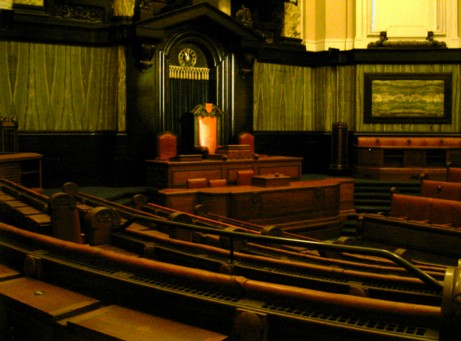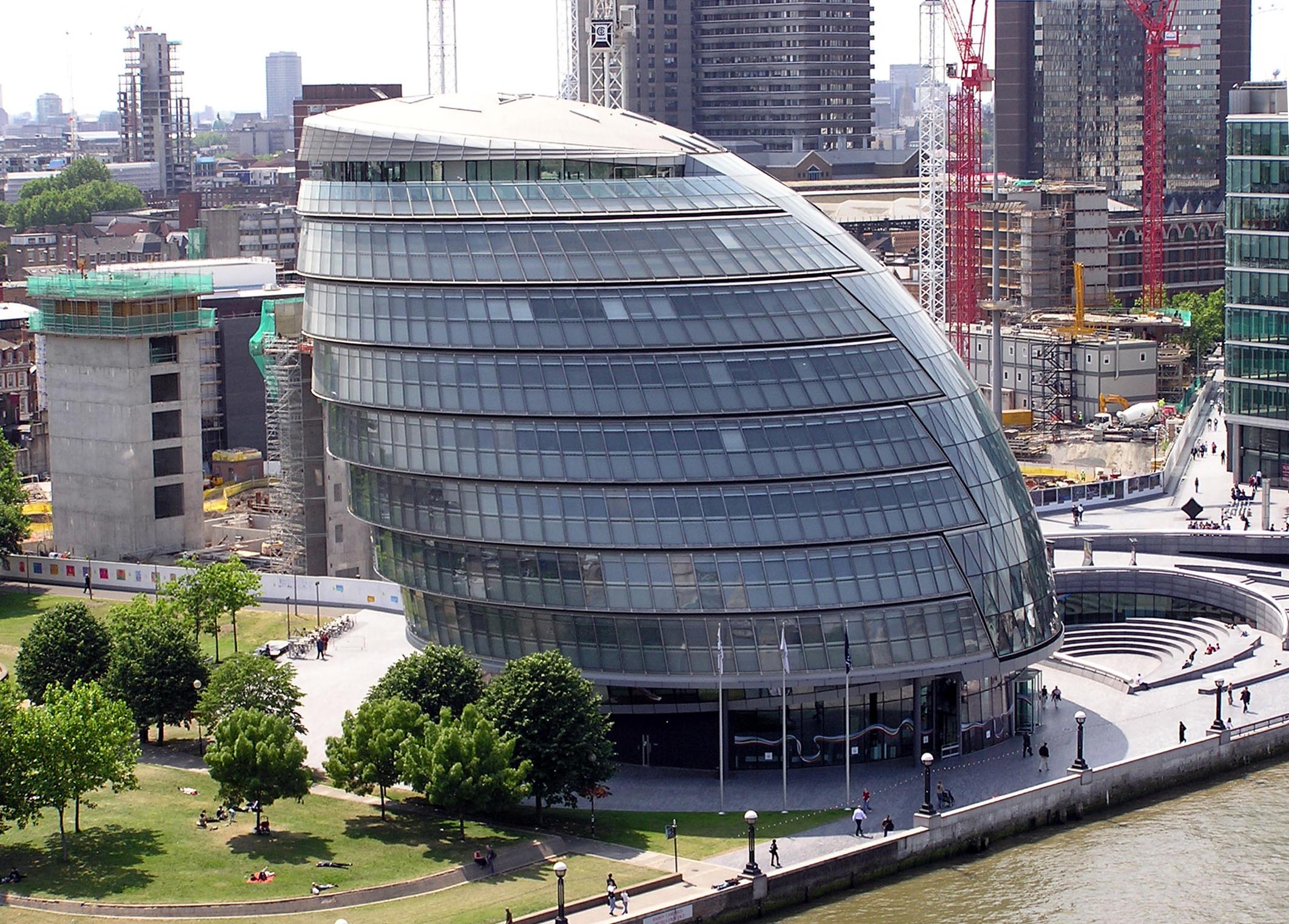|
London Planning Advisory Committee
The London Planning Advisory Committee (LPAC) was an ad hoc Londonwide joint committee responsible for strategic planning from the abolition of the Greater London Council in 1986 to the creation of the Greater London Authority in 2000. The leader was Sally Hamwee from 1986 and Nicky Gavron from 1994. Statutory basis The Local Government Act 1985 required the London borough councils to set up a "joint planning committee for Greater London". The Town and Country Planning Act 1990 Section 3 (2) detailed the functions of the joint planning committee as: *advise the local planning authorities (the London borough councils and the City of London Corporation); *inform the Secretary of State of their views; and *inform the local planning authorities for areas near Greater London and other relevant bodies. The London Planning Advisory Committee was serviced by Havering London Borough Council.J.N. Berry, W.S. McGreal (2003), European Cities, Planning Systems and Property Markets The j ... [...More Info...] [...Related Items...] OR: [Wikipedia] [Google] [Baidu] |
Greater London Council
The Greater London Council (GLC) was the top-tier local government administrative body for Greater London from 1965 to 1986. It replaced the earlier London County Council (LCC) which had covered a much smaller area. The GLC was dissolved in 1986 by the Local Government Act 1985 and its powers were devolved to the London boroughs and other entities. A new administrative body, known as the Greater London Authority (GLA), was established in 2000. Creation The GLC was established by the London Government Act 1963, which sought to create a new body covering more of London rather than just the inner part of the conurbation, additionally including and empowering newly created London boroughs within the overall administrative structure. In 1957 a Royal Commission on Local Government in Greater London had been set up under Edwin Herbert, Baron Tangley, Sir Edwin Herbert, and this reported in 1960, recommending the creation of 52 new London boroughs as the basis for local government. It ... [...More Info...] [...Related Items...] OR: [Wikipedia] [Google] [Baidu] |
Greater London Authority
The Greater London Authority (GLA), colloquially known by the metonym "City Hall", is the devolved regional governance body of Greater London. It consists of two political branches: the executive Mayoralty (currently led by Sadiq Khan) and the 25-member London Assembly, which serves as a means of checks and balances on the former. Since May 2016, both branches have been under the control of the London Labour Party. The authority was established in 2000, following a local referendum, and derives most of its powers from the Greater London Authority Act 1999 and the Greater London Authority Act 2007. It is a strategic regional authority, with powers over transport, policing, economic development, and fire and emergency planning. Three functional bodies— Transport for London, the Mayor's Office for Policing and Crime, and the London Fire Commissioner—are responsible for delivery of services in these areas. The planning policies of the Mayor of London are detailed in a statuto ... [...More Info...] [...Related Items...] OR: [Wikipedia] [Google] [Baidu] |
Greater London
Greater may refer to: *Greatness, the state of being great *Greater than, in inequality (mathematics), inequality *Greater (film), ''Greater'' (film), a 2016 American film *Greater (flamingo), the oldest flamingo on record *Greater (song), "Greater" (song), by MercyMe, 2014 *Greater Bank, an Australian bank *Greater Media, an American media company See also * * {{Disambiguation ... [...More Info...] [...Related Items...] OR: [Wikipedia] [Google] [Baidu] |
Sally Hamwee, Baroness Hamwee
Sally Rachel Hamwee, Baroness Hamwee (born 12 January 1947) is a Liberal Democrats (UK), Liberal Democrat politician and their Lead Home Affairs Spokesperson in the House of Lords. She is a Life Peer and former chair of the London Assembly. Biography Hamwee was educated at the Manchester High School for Girls, and Girton College, Cambridge, where she studied law. She was a councillor in the London Borough of Richmond upon Thames from 1978 to 1998, as a Liberal until the formation of the Liberal Democrats in 1988, and was made a life peer on 6 June 1991 as Baroness Hamwee, of Richmond upon Thames in the London Borough of Richmond upon Thames. London Assembly When the London Assembly was established in 2000, a written agreement with the Labour Party (UK), Labour Party saw Sally Hamwee and Trevor Phillips agreeing to share responsibility for chairing the Assembly in its first term. Trevor Phillips took the Chair in 2000, passing it over to Hamwee in May 2001. Phillips chaired t ... [...More Info...] [...Related Items...] OR: [Wikipedia] [Google] [Baidu] |
Nicky Gavron
Felicia Nicolette C. Gavron (born November 1941) is a British politician who served as Deputy Mayor of London to Ken Livingstone from 2000 to 2003 and 2004 to 2008. She was a member of the London Assembly from 2000 to 2021 and was the former Labour candidate for the 2004 Mayor of London elections. Biography Gavron was born in Worcester. She is the daughter of a German Jew who had fled Nazi Germany in 1936 as pressure on the Jewish community was mounting. In March 2008 she claimed that her mother was chosen to dance before Hitler in the opening ceremony of the 1936 Olympics, until the authorities discovered that she was Jewish. She studied at Worcester Girls' Grammar School, followed by the study of the history of art at the Courtauld Institute in London. She then gained a job as a lecturer at the Camberwell School of Art in South London. Political career Gavron first became interested in politics in the 1970s when she campaigned against the widening of the Archway Road in ... [...More Info...] [...Related Items...] OR: [Wikipedia] [Google] [Baidu] |
Havering London Borough Council
Havering London Borough Council is the local authority for the London Borough of Havering in Greater London, England. It is a London borough council, one of 32 in the United Kingdom capital of London. Havering is divided into 18 wards, each electing three councillors. Since May 2018, Havering London Borough Council has been in no overall control. It comprises 25 Conservative Party members, 23 Havering Residents Association members, 5 Labour Party members and 1 Independent member. The council was created by the London Government Act 1963 and replaced two local authorities: Hornchurch Urban District Council and Romford Borough Council. History There have previously been a number of local authorities responsible for the Havering area. The current local authority was first elected in 1964, a year before formally coming into its powers and prior to the creation of the London Borough of Havering on 1 April 1965. Havering replaced Hornchurch Urban District Council and Romford Borough ... [...More Info...] [...Related Items...] OR: [Wikipedia] [Google] [Baidu] |
Local Government Act 1985
The Local Government Act 1985 is an Act of Parliament in the United Kingdom. Its main effect was to abolish the six county councils of the metropolitan counties that had been set up in 1974, 11 years earlier, by the Local Government Act 1972, along with the Greater London Council that had been established in 1965. In their place many single purpose authorities known collectively as 'joint authorities' were established for fire service, police and passenger transport. An ad hoc education authority was established for Inner London and a planning authority for Greater London. The legislation permitted councils to form 'joint arrangements' for waste disposal and other services that they wished to provide together. Time-limited residuary bodies were created to dispose of the assets of the former authorities. Background Following the victory of the Conservative Party at the 1979 general election, Margaret Thatcher's government were involved in a series of high-profile disputes with ... [...More Info...] [...Related Items...] OR: [Wikipedia] [Google] [Baidu] |
Town And Country Planning Act 1990
The Town and Country Planning Act 1990c 8 is an act of the United Kingdom Parliament regulating the development of land in England and Wales. It is a central part of English land law in that it concerns town and country planning in the United Kingdom. Repealed in parts by the Planning and Compensation Act 1991, it is now also complemented by the Planning and Compulsory Purchase Act 2004. Contents In the United Kingdom, the Town and Country Planning Act 1990 contains 15 parts with 337 sections, plus 17 Schedules, and serves as an incomplete, but expansive code of planning regulations in England and Wales. Part I, planning authorities Subsections 1 and 2 set out that county and district (county and county borough in Wales) councils are Local Planning Authorities ('LPA's) in non-metropolitan counties; that metropolitan district councils (usually unitary authorities) are LPAs in metropolitan counties and that different authorities govern Greater London and the Isles of Scilly. This ... [...More Info...] [...Related Items...] OR: [Wikipedia] [Google] [Baidu] |
Greater London Authority Act 1999
The Greater London Authority Act 1999 (c. 29) is the Act of Parliament that established the Greater London Authority, the London Assembly and the Mayor of London. Background The Act was brought in after a referendum was held under the Greater London Authority (Referendum) Act 1998 (c. 3). The referendum question was: 'Are you in favour of the Government's proposals for a Greater London Authority, made up of an elected mayor and a separately elected assembly?' The Yes vote was 72.01%, the No vote was 27.99%. Provisions Apart from the main provisions creating the authority and transferring powers to it, it also created a Metropolitan Police Authority for the Metropolitan Police Service, and consequently altered the borders of the Metropolitan Police District to be coterminous with Greater London (excluding the City). The Act comprises 425 Sections in 12 Parts including 22 named Chapters and 34 Schedules. It was the longest Act to be passed by Parliament since the Government ... [...More Info...] [...Related Items...] OR: [Wikipedia] [Google] [Baidu] |
1986 Establishments In England
The year 1986 was designated as the International Year of Peace by the United Nations. Events January * January 1 **Aruba gains increased autonomy from the Netherlands by separating from the Netherlands Antilles. **Spain and Portugal enter the European Community, which becomes the European Union in 1993. *January 11 – The Sir Leo Hielscher Bridges, Gateway Bridge in Brisbane, Australia, at this time the world's longest prestressed concrete free-cantilever bridge, is opened. *January 13–January 24, 24 – South Yemen Civil War. *January 20 – The United Kingdom and France announce plans to construct the Channel Tunnel. *January 24 – The Voyager 2 space probe makes its first encounter with Uranus. *January 25 – Yoweri Museveni's National Resistance Army Rebel group takes over Uganda after leading a five-year guerrilla war in which up to half a million people are believed to have been killed. They will later use January 26 as the official date to avoid a coincidence of ... [...More Info...] [...Related Items...] OR: [Wikipedia] [Google] [Baidu] |
Government Agencies Established In 1986
A government is the system or group of people governing an organized community, generally a state. In the case of its broad associative definition, government normally consists of legislature, executive, and judiciary. Government is a means by which organizational policies are enforced, as well as a mechanism for determining policy. In many countries, the government has a kind of constitution, a statement of its governing principles and philosophy. While all types of organizations have governance, the term ''government'' is often used more specifically to refer to the approximately 200 independent national governments and subsidiary organizations. The major types of political systems in the modern era are democracies, monarchies, and authoritarian and totalitarian regimes. Historically prevalent forms of government include monarchy, aristocracy, timocracy, oligarchy, democracy, theocracy, and tyranny. These forms are not always mutually exclusive, and mixed governme ... [...More Info...] [...Related Items...] OR: [Wikipedia] [Google] [Baidu] |

